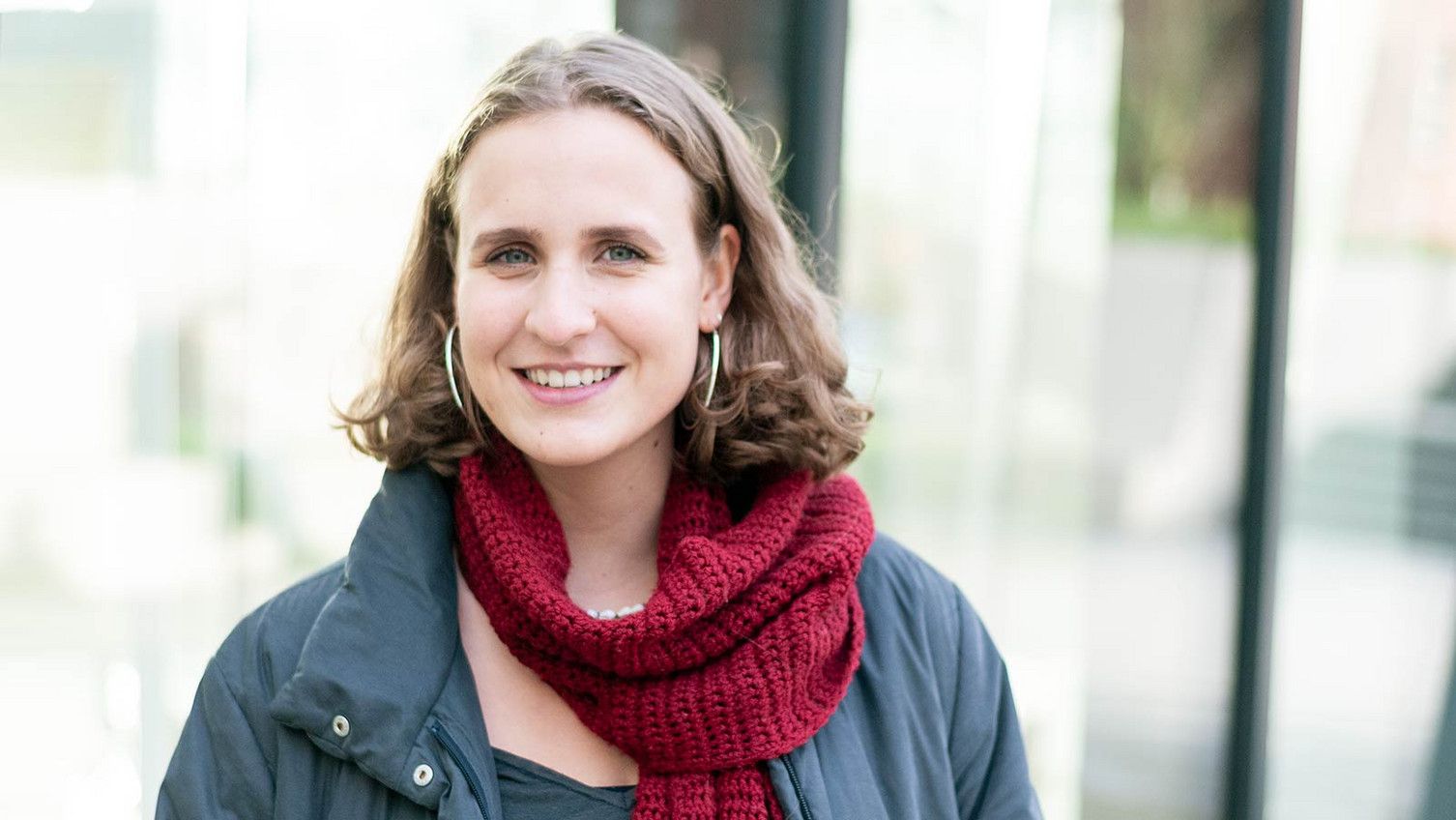DATAx: Anna Bischof: The world from above
2021-12-19 The environmental science student used to be interested mainly in chemistry and biology. But already in her first semester at Leuphana College, she discovered her passion for programming. Today, as a tutor, she is herself part of the university didactic programme DATAx.
It was in Kenya that Anna Bischof first understood the connection between cartography and nature conservation. "I took part in a UNESCO volunteer programme after school and worked in a reserve. One of the rangers explained to us, using only maps, how the area could be better used for animals living there," the now 23-year-old recalls. At that time, she had just dropped out of her studies at the LMU Munich for Pharmaceutical Sciences. "Through the voluntary service I realised that I would like to work in the field of nature conservation," Anna Bischof recalls. She informed herself about environmental sciences and came across two programmes that interested her: at the University of Freiburg and at Leuphana University Lüneburg: "I first got the acceptance from Baden-Württemberg and was really happy when it also worked out at Leuphana College. I was already convinced by the study model with its diverse options," says Anna Bischof.
Already in the first semester, a path opened up at Leuphana that the student had not initially thought of: until then, she had been very interested in chemistry and biology. In the course catalogue she came across the computer science course "DATAx". In this module, first-semester students deal with the basics of computer science. Anna Bischof signed up and was immediately hooked: "Admittedly, the beginning was hard. But it was worth it. Through programming, you learn to structure problems better and the competence can also be transferred to the analogue world. It's brain jogging." On her learning path, the student also came across the cartography programme ArgGIS. This can be used to create maps and carry out surveys: "Complementary studies is a goldmine for me. For example, I was able to take advanced programming courses here after being introduced to it by DATAx, and I got involved with cartography."
ArgGIS enables different representations of landscapes and is thus also a useful addition to the Environmental Sciences major: "For example, you can use the programme to show land use changes by comparing historical maps with current material. That's exciting, but sometimes also sad. For example, when formerly diverse habitats have turned into monocultures," the student reports. She is particularly fond of satellite images: "You learn so much about the world through remote sensing." She can also take courses on this in her spatial sciences minor.
Today, she passes on her passion for data processing and programming to other students. Anna Bischof is now in her fifth semester and a student assistant in the DATAx module, which all first-semester students take today: "Data is everywhere. That's why the course is important for every subject area," says Anna Bischof. Among other things, the students get an introduction to the currently most important programming language Python, get an idea of machine learning and learn what artificial intelligences can do. Anna Bischof also teaches students in the Lüneburg Data Club.
In the coming semester, however, she will take a break there. Born in Munich, she is studying in Romania as part of the Erasmus programme: "My roots are there and for a budding environmental scientist, the wealth of species there is very exciting," says Anna Bischof. However, that is only half the truth: the student is taking her courses at the University of Cluj-Napoca. The northern Romanian city is considered the Silicon Valley of Europe.
With DATAx, Leuphana University Lüneburg offers an interdisciplinary, highly didactic format that is intended to promote data literacy education for all Bachelor students. All first-semester students should be enabled to question and evaluate statements and contexts from data in a self-determined, reflective and responsible manner in the age of digital change, thus transferring the ideas of the Enlightenment to the present day. DATAx is funded by the Heinz Nixdorf Foundation and the Stifterverband.

